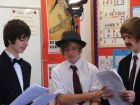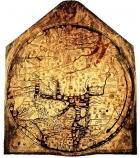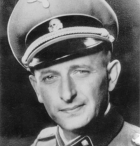Substantive concepts
Substantive concepts are those concerned with the subject matter of history – the substance about which students are learning. Some materials in this section focus on the teaching of highly specific contextualised terms and others explore more general strategies for building and reinforcing knowledge of recurring concepts over time. Read more
Sort by:
Date (Newest first) | Title A-Z
Show:
All |
Articles |
Podcasts |
Multipage Articles
-

Knowledge and the Draft NC
ArticleClick to view -

Transforming historical understanding through scripted drama
ArticleClick to view -

Polychronicon 146: Interpreting the history of 'big history'
ArticleClick to view -

How my interest in what I don't teach has informed my teaching and enriched my students' learning
ArticleClick to view -

Developing sixth-form students' thinking about historical interpretation
ArticleClick to view -

The Holocaust in history and history in the curriculum
ArticleClick to view -

Polychronicon 141: Adolf Eichmann
ArticleClick to view -

'Picture This': A simple technique to teach complex concepts
ArticleClick to view -

A modest proposal for change in Canadian history education
ArticleClick to view -

Helping students put shape on the past; systematic use of analogies to accelerate understanding
ArticleClick to view -

Developing conceptual understanding through talk mapping
ArticleClick to view -

Ranking and classifying: teaching political concepts to post-16 students
ArticleClick to view

